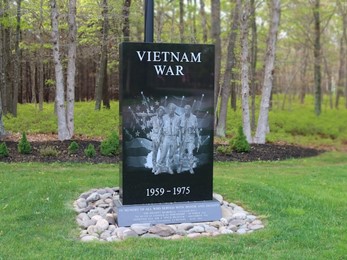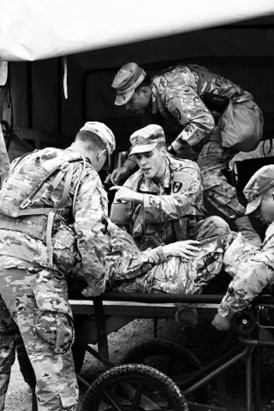The Vietnam War remains a pivotal chapter in military history, characterized by unconventional warfare, guerrilla tactics, and a complex geopolitical landscape. Despite the challenges faced, the conflict provided a wealth of lessons and insights that continue to shape modern military training. Troy Thompson of Salem, New Hampshire discusses the tactical innovations and strategies employed during the Vietnam War and draw parallels to contemporary military training methods.
Adaptability and Flexibility
One of the most striking features of the Vietnam War was the need for adaptability and flexibility on the part of military personnel. The terrain and enemy tactics were constantly changing, demanding rapid adjustments to strategies. This lesson resonates strongly in modern military training, emphasizing the importance of preparing soldiers to think critically, improvise, and adapt to dynamic and unpredictable situations.
Counterinsurgency and Asymmetric Warfare
The Vietnam War epitomized the challenges of counterinsurgency and asymmetric warfare. Conventional military strategies often proved ineffective against a guerrilla force that blended in with the civilian population. Today’s military training programs place a significant emphasis on understanding and countering asymmetric threats, preparing soldiers to navigate complex environments and engage with non-traditional adversaries.
Focus on Civil-Military Relations
The Vietnam War underscored the importance of effective civil-military relations. Building trust and rapport with local populations, understanding their needs, and respecting cultural nuances were critical factors in achieving success. This lesson remains relevant in contemporary military training, emphasizing the significance of community engagement, humanitarian efforts, and cultural awareness in conflict zones.
Integration of Technology
The Vietnam War era witnessed significant technological advancements, particularly in communication and surveillance. Today’s military training incorporates cutting-edge technologies, including advanced communication systems, drones, and sophisticated surveillance equipment. Teaching soldiers how to leverage these tools effectively is paramount to enhancing situational awareness and overall operational effectiveness.

Emphasis on Small Unit Leadership
The Vietnam War highlighted the critical role of small unit leadership in achieving success on the battlefield. Non-commissioned officers and junior officers played pivotal roles in decision-making and execution. Modern military training places a strong emphasis on developing leadership skills at all levels, recognizing that effective small unit leadership is essential for mission success.
Psychological Resilience and Mental Health
The Vietnam War brought to light the profound impact of combat on mental health. Contemporary military training prioritizes psychological resilience, stress management, and mental health support for soldiers. Lessons learned from Vietnam underscore the necessity of providing resources and interventions to address the psychological challenges associated with military service.
Lessons in Urban Warfare
The Vietnam War saw intense combat in urban environments, highlighting the unique challenges posed by densely populated areas. Today’s military training includes specialized urban warfare training, equipping soldiers with the skills and tactics necessary to navigate and engage in complex urban settings.
Conclusion
The Vietnam War stands as a crucible of military experience, yielding invaluable lessons that continue to shape modern military training. Adaptability, counterinsurgency strategies, civil-military relations, technological integration, small unit leadership, mental health support, and urban warfare tactics are just a few of the enduring principles drawn from this era. By studying and applying these lessons, today’s armed forces ensure they are prepared to navigate the evolving complexities of modern conflict with precision, efficiency, and resilience.
